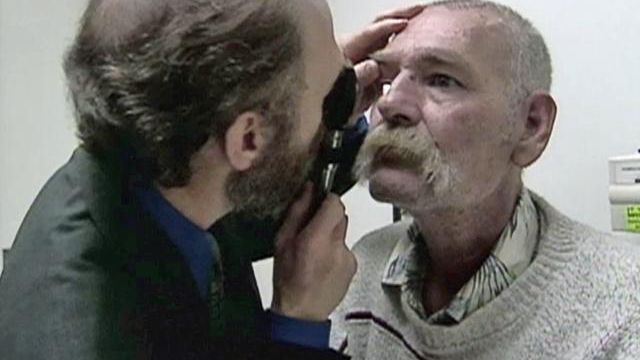Experimental brain stimulation could help epilepsy patients
An experimental brain-stimulation therapy could help hundreds of thousands of Americans whose epilepsy cannot be treated with medicines and surgery.
Posted — UpdatedAn experimental brain-stimulation therapy could help hundreds of thousands of Americans whose epilepsy cannot be treated with medicines and surgery.
Epilepsy affects more than 2 million people in the United States, and about 150,000 new cases are diagnosed each year.
A third of those patients have uncontrollable seizures that surgery or medication don't help, severely compromising their quality of life.
Experimental, deep-brain stimulation, though, is increasingly offering hope to those patients, such as Stephen Neiley.
Five years ago, severe seizures nearly cost Neiley everything. He could not work or take care of himself; he lost his business and his family. So he decided to try DBS treatment – and his seizures have become much less frequent.
"I used to have two, three a week. Now I'm down to one to two a month," Neiley said. "It's fun to just be able to be retired now and be able to see and help people."
By electrically stimulating the brain where seizures originate, DBS can cut seizure rates by an average of two-thirds, according to a five-year study conducted by the equipment-maker and recently presented to neurologists.
"The goal here was to try to go directly in the brain to stop seizures from spreading and becoming a full-blown convulsion," said Dr. Michael Kaplitt, director of functional neurosurgery at Weill Cornell Medical Center in New York City.
A device implanted in a patient's chest sends rapid-fire electrical signals to the brain through electrodes wired into the scalp.
DBS is an accepted treatment for Parkinson's disease, but has yet to be approved for epilepsy.
Neiley said he hopes his experience with DBS helps pave an easier road for epilepsy patients who follow him. Meanwhile, he's become healthy enough to travel.
"I'll go back to California, see my grandchildren," Neiley said.
• Credits
Copyright 2024 by Capitol Broadcasting Company. All rights reserved. This material may not be published, broadcast, rewritten or redistributed.





